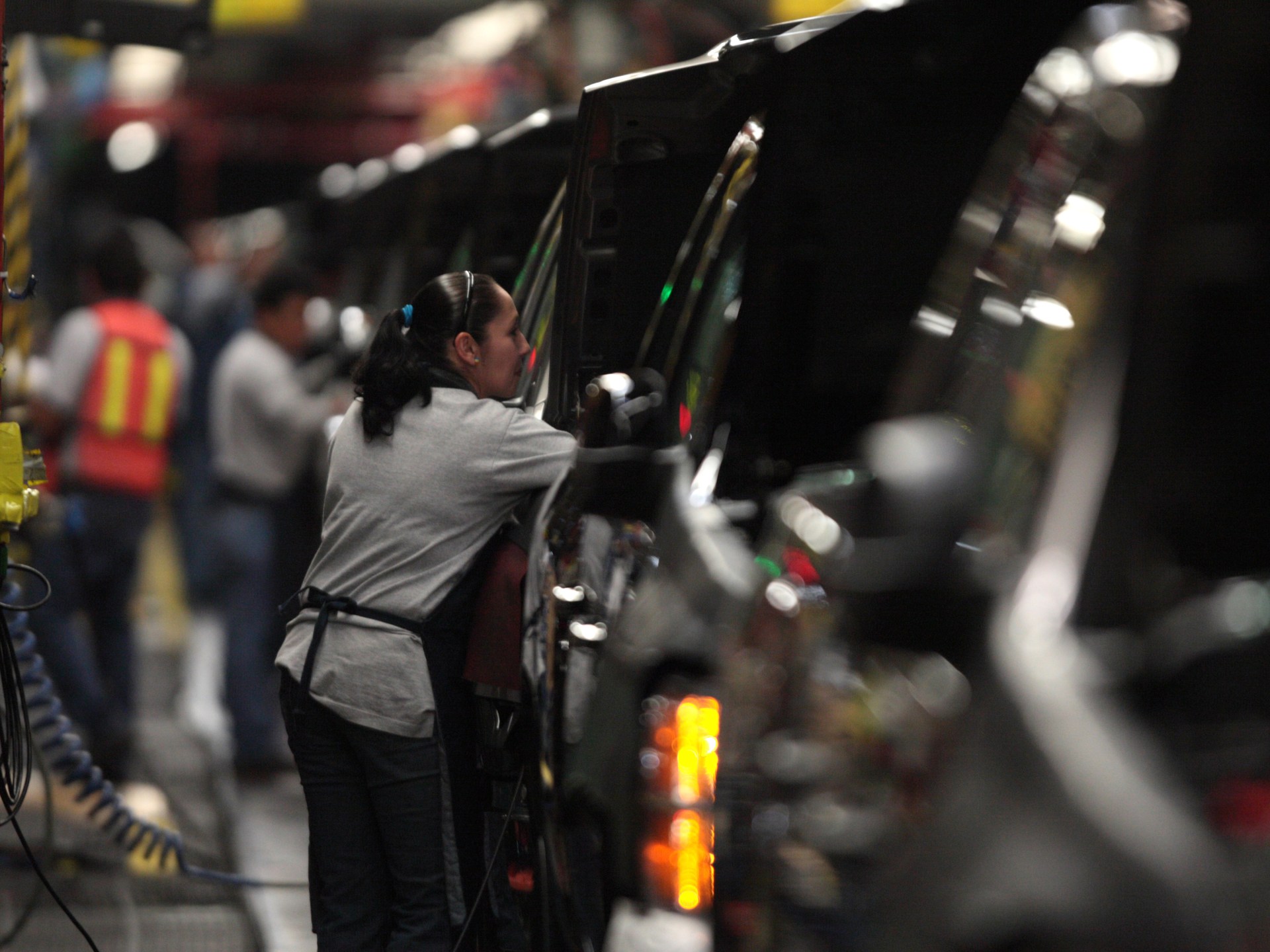Physical Address
304 North Cardinal St.
Dorchester Center, MA 02124
Physical Address
304 North Cardinal St.
Dorchester Center, MA 02124

After many pickles, the administration of President Donald Trump announced the date on which tariff fees will be imposed by 25 percent on most of the goods that enter the United States from Mexico and Canada. T-Day was appointed on February 4 when some revenge measures of their neighbors become in effect.
Americans are now preparing for what they expect to be the highest prices on imported goods. So far, the American media has mainly focused on intermittent examples such as Tikila, Avocado and beer, so there is a tendency to reduce the effects of definitions. However, American families will inevitably strike out of alcohol and their dismissal.
In fact, the imposition of customs duties in an area where trade is deeply integrated is a recipe for disaster. Let’s take the state of relations between the United States and Mexico. Mexico is the largest commercial partner for the United States with a value of more than $ 1.2 million of goods that pass through its common borders every minute. However, Mexico’s economic importance is reduced in every turn because the country is constantly depicted on the American public as a failed failed state. In fact, this photography is exactly that Trump needs to summon the emergency powers required to run these definitions.
The US president cannot be more wrong when he says that the United States does not need Mexico. It is so wrong that by implementing the definitions, it will not only lead to inflation – because Americans will pay more for goods that the United States does not produce – but will undermine the industries he wants to protect. Whatever the reprisal measures, the Mexican government decides to follow up will make this worse for consumers and various industries.
Even some of the products on which superficial analyzes focus on the American media – such as beer – show the tariff of this illogical step. Mexico is a large product and a source of beer, but to maintain this industry, it buys 75 percent of American barley exports. Any disturbance in beer production in Mexico due to the low demand from its largest buyer – the United States – will inevitably strike American barley producers. The situation is similar to thousands of other products that depend on the border supplies.
Trump’s supporter may refute: “It is absorbed and drank America. The broken supply chains will recover.” This is said easier than doing it, but on the assumption that everything could have been transferred to the United States, the Americans will continue to face a catastrophic situation.
Take the auto industry in North America. It spreads throughout the region, supported by the USMCA and Mexico Commerce Agreement, so that vehicles can cross from and from the United States and Mexico, where each country gradually adds value to every car and truck. Trumpan’s logic confirms that the customs tariff will force car manufacturers to restore all production to the United States and maintain all this value to themselves.
This will not happen, that is why.
In this industry, it is often done in Mexico, in Mexico, in this industry, in Mexico in Mexico. No skilled worker in the United States or Canada will accept the wages that Mexicans want to obtain, and these workers add important parts along the car production. The end result is a cost -cost car but also provides good -wage jobs.
Thanks to this system that the United States is the fifth largest exporter of cars in the world, Canada and Mexico are some of its major customers. It is a situation that the country can only preserve thanks to the skilled Mexican workers who maintain the price. Without prohibiting all auto imports, China and other car industry can easily undermine cars in America, even with huge tariffs.
It should also be noted that if manufacturing is imposed to the United States – in a tragic development of fate due to Trump’s collective deportation – companies will be stimulated to employ unspecified workers in the minimum wage and low prices, just like agricultural industries and construction already does.
In the end, Trump is right in one thing. When it comes to the North American trade, there was a side to support the other. But the United States was not supporting Mexico or Canada, he says. It was the Mexican workers who supported the United States, the profits of companies and consumers.
There is still a way to fix this.
While Trump and American economic nationalists blame Mexican for “stealing” their industrial functions, Mexico is making the entire supply chain in North America more powerful with concerns about the real American workers’ servers regarding Mexican companies. The Mexican government did this by doubling the minimum wage and taking steps towards strengthening unions while maintaining the costs of competitive labor.
If American workers really want to protect their jobs without drowning in Trump’s speech to foreigners, throughout the national unions in the United States and Mexico is the correct way to support workers’ rights on both sides of the border. The USMCA review in 2026 will be the perfect place to conduct this conversation. But if the commercial deal does not survive this length, workers will have to take the initiative on their own.
The opinions expressed in this article are the author of the author and do not necessarily reflect the position of the editorial island.